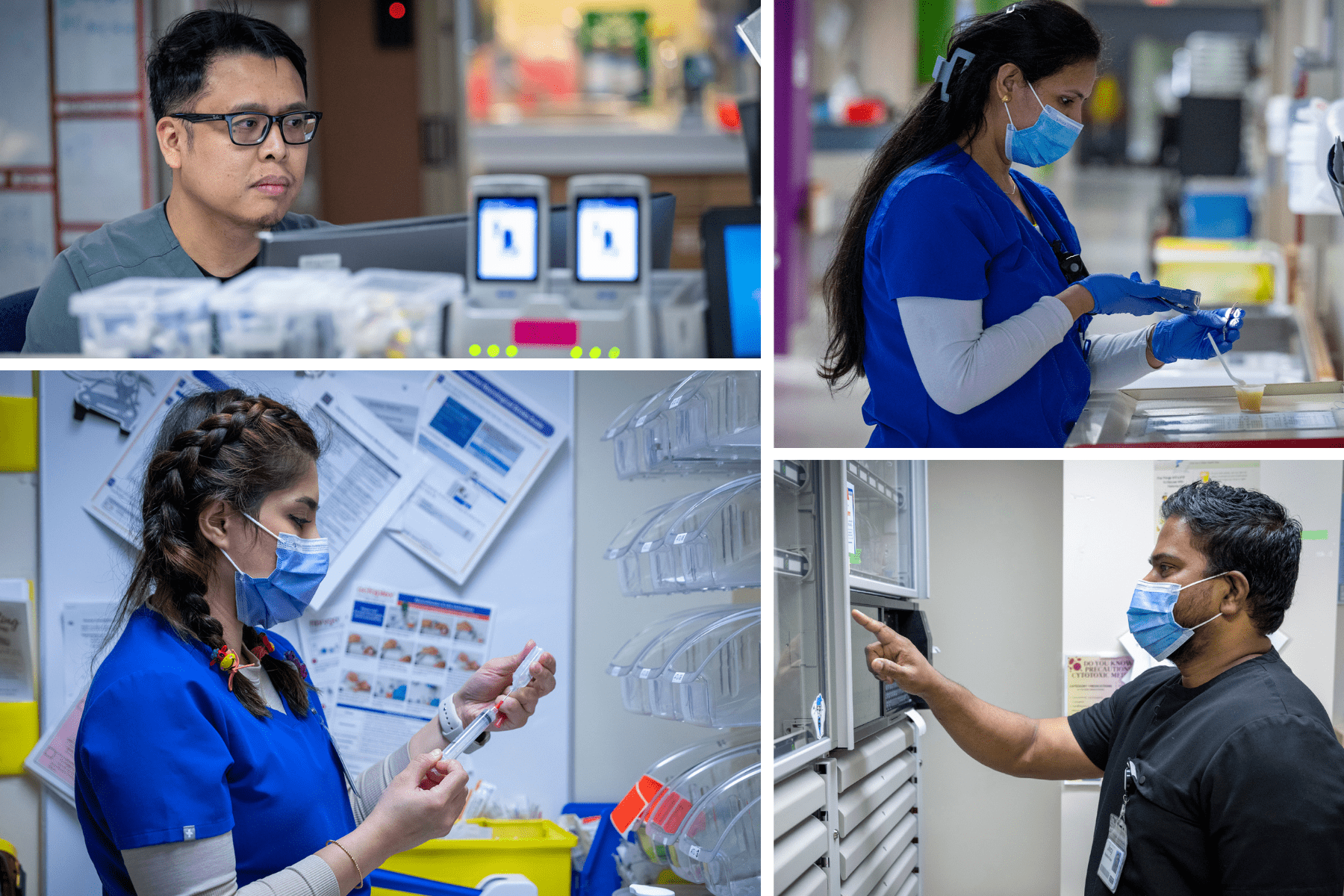
“From my very first day, I felt welcomed and supported in ways I hadn’t expected,” says Mahsa Behrouzi Moghaddam, who is one of the more than 35 internationally-educated nurses hired at Kingston Health Sciences Centre (KHSC) in the past year.
Many nurses like her, including those who are trained in Canada, come to KHSC through the Nursing Graduate Guarantee program, funded by Ontario’s Ministry of Health. The program gives nurses, who are within 12 months of registering with the College of Nurses of Ontario, temporary, full-time employment.
As part of the program, KHSC offers three months of orientation and mentorship to help them transition into their nursing roles before they begin working independently.
A registered nurse (RN) who trained in Iran, Behrouzi Moghaddam says the comprehensive training she received when she started at KHSC was incredibly valuable. “It was designed to be practical and hands-on, which helped me quickly adapt to the new health-care setting and build confidence in my skills."
The team not only understood the stress and challenges I faced as a nurse transitioning to a new country, but they also actively helped me overcome those difficulties. They created a positive and friendly environment where I felt encouraged and motivated every day.
We spoke with four internationally-educated nurses who are using their expertise and developing their nursing careers in Canada while supporting our health-care system at a time of great need. All of them work as part of KHSC’s Resource Pool team and are assigned to different inpatient Medicine and Surgical units as needed.
Learn about some of the challenges they’ve faced and what they enjoy most about being able to get back to delivering quality patient care.
Jincy
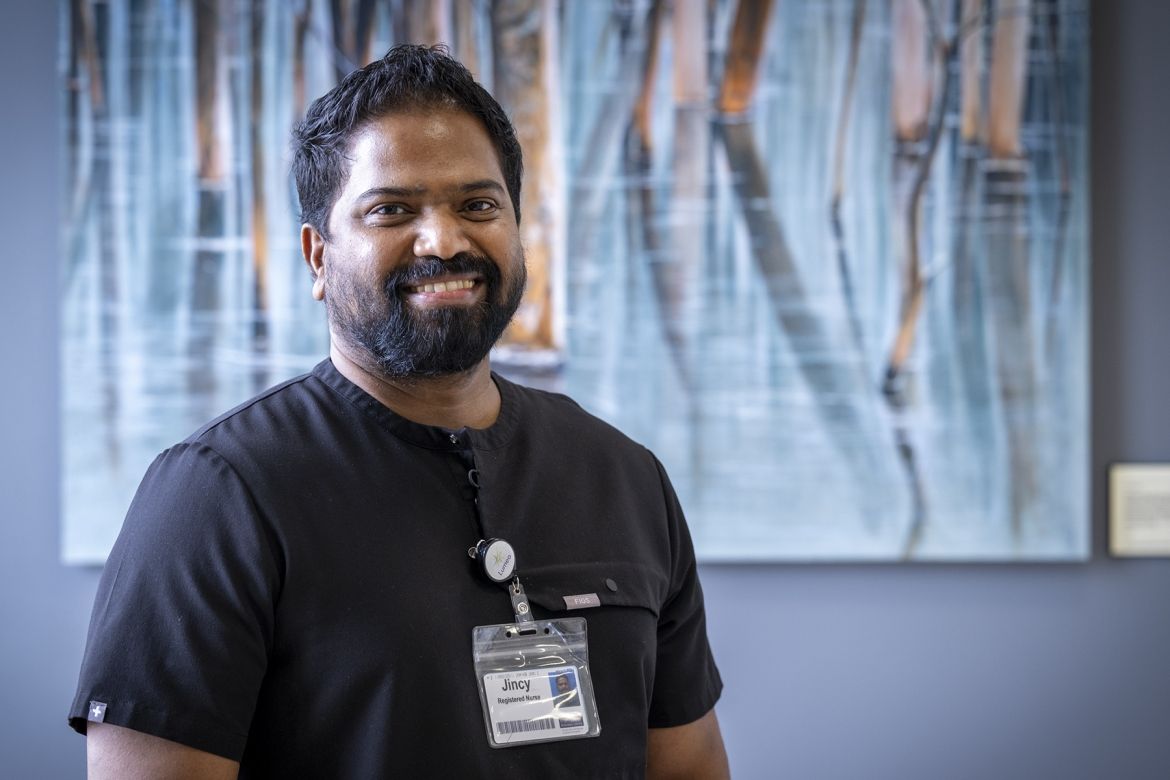
International training: He was a midwife and RN in India for more than 12 years before coming to Canada six years ago.
Days on the job: 509
After completing his Supervised Practice Experience Partnership, a collaboration between the College of Nurses of Ontario and Ontario Health, at The Ottawa Hospital, Jincy has worked to overcome his initial fear of not adapting to the work culture at KHSC—one of the key challenges he faced.
“I overcame it by using every opportunity to communicate with my mentors, colleagues and manager, especially during my several months of mentorship. Their continuous support and guidance helped to build confidence in me.”
Jincy says that the journey to becoming an RN in Canada was far from easy. Now that he has fulfilled his dream, he has a deep sense of relief and accomplishment.
“It gives me satisfaction and a sense of responsibility and accountability to have the privilege to mentor students and other internationally-educated nurses. I can understand the apprehension and concern of a new nurse. Apart from helping them get acquainted with the nursing skills, I also ask them to discuss their concerns. I try to instill confidence and assure them by explaining the work culture and the support we receive at KHSC.”
Deeksha
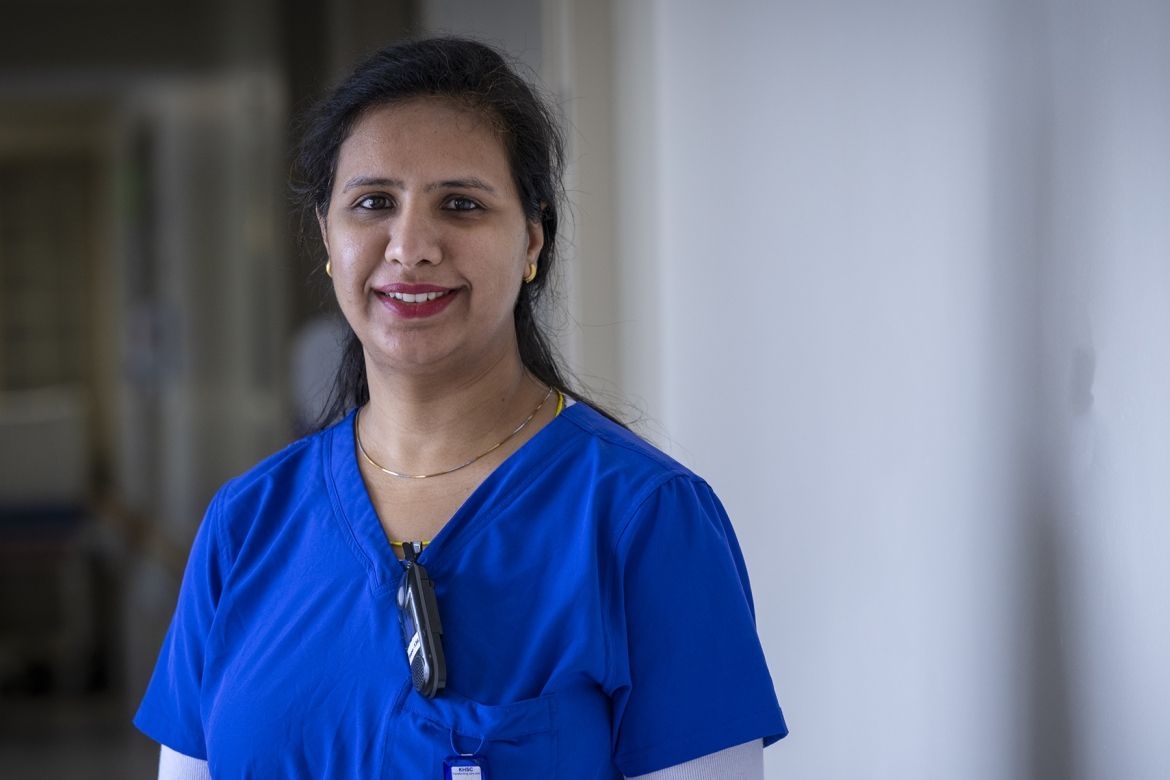
International training: She trained to be a midwife and RN in India where she worked as an operating room and emergency department nurse. She also worked in Singapore before moving to Canada in 2021.
Days on the job: 151
For Deeksha, being a registered nurse is one of her favourite things about living in Canada.
“I love to serve patients and their family members when they really need us.”
Building confidence in herself has been a hurdle at times, but she has overcome it with the support of clinical resources and her experienced colleagues in Medicine units.
By regularly asking herself, “Have I done everything for my patient to provide optimal care?” she has gradually strengthened her confidence in her skills.
After completing her months-long formal mentorship and orientation, she began working independently, feeling “confident but nervous” at the same time.
There were certain procedures – such as male urinary catheterization and vacuum-assisted closure of a wound – that she had never performed before but learned to do at KHSC.
The opportunity to apply what she has learned when delivering real-world patient care is a great reminder of her ability to overcome challenges.
“I’m grateful for the chance to explore the myriad of specialties at KHSC and continue growing as a nurse.”
Janrey
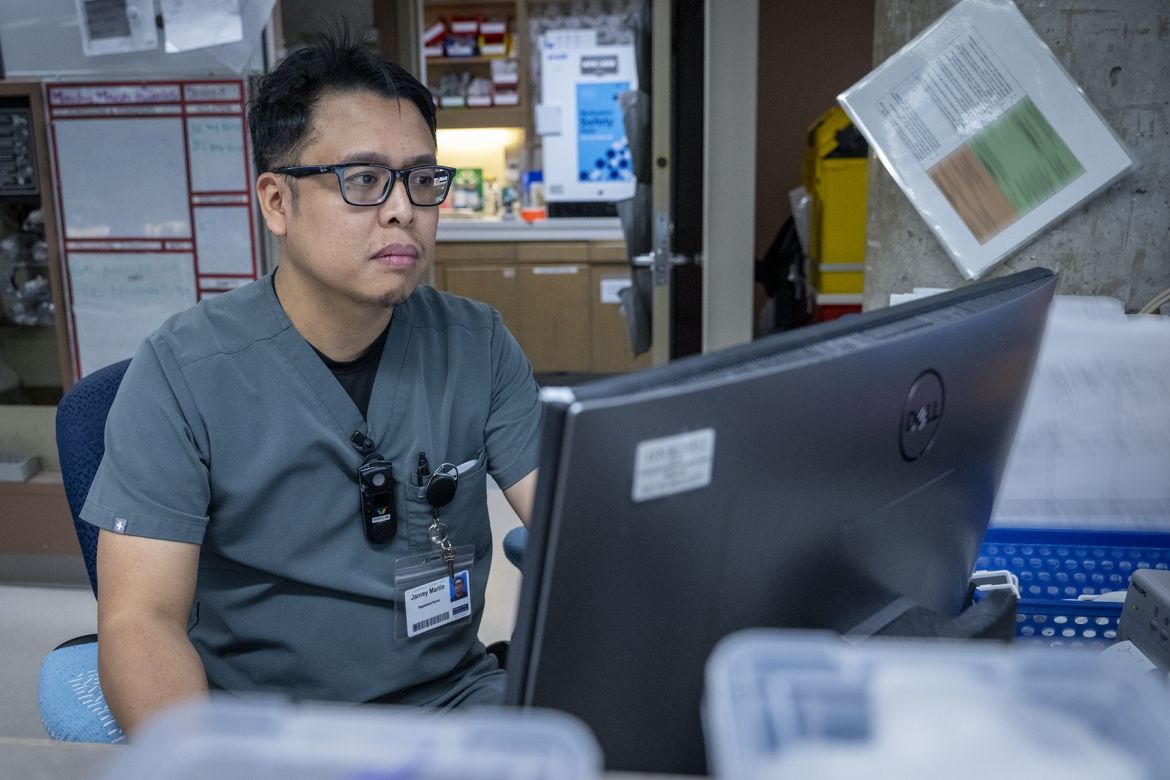
International training: He trained to be a nurse in the Philippines and in 2014 moved to Manitoba where he worked as a health-care aide until 2023 when KHSC hired him as a registered practical nurse (RPN).
Days on the job: 637
“I almost gave up on becoming a nurse in Canada because it cost me a lot of time and money to challenge my certification.”
But he didn’t give up. Instead, he and his family moved from Manitoba to Kingston for the opportunity to work first as an RPN, and then, a few months later, an RN once he received his license.
The challenges of relocating to a new province, adjusting to a new city, and starting his nursing career in Canada were ones he met head-on, choosing to adapt and learn every day.
“I had to be humble and open to learning again. I didn’t hesitate to ask questions if I was unsure about certain tasks and procedures.
“The training I received during orientation and buddy shifts, along with the support from my manager and many mentors was a big help in starting my career at KHSC.
“To be fully working as a nurse feels great. I definitely enjoy being able to take care of and help other people. It’s my passion. I love the bedside care, having great conversations with my patients, and being appreciated for the care I provide is very heartwarming.
The joy he gets from helping other people extends beyond his patients to the new nurses he now mentors.
“I just want to give back what I received. I try to put myself in their shoes. Starting as a new hire or working as a nursing student must be very intimidating. So I make it a point to be welcoming and cheerful and just be there if they need anything. I try to make their experiences less stressful and encourage them to learn at a pace they can manage.”
Mahsa
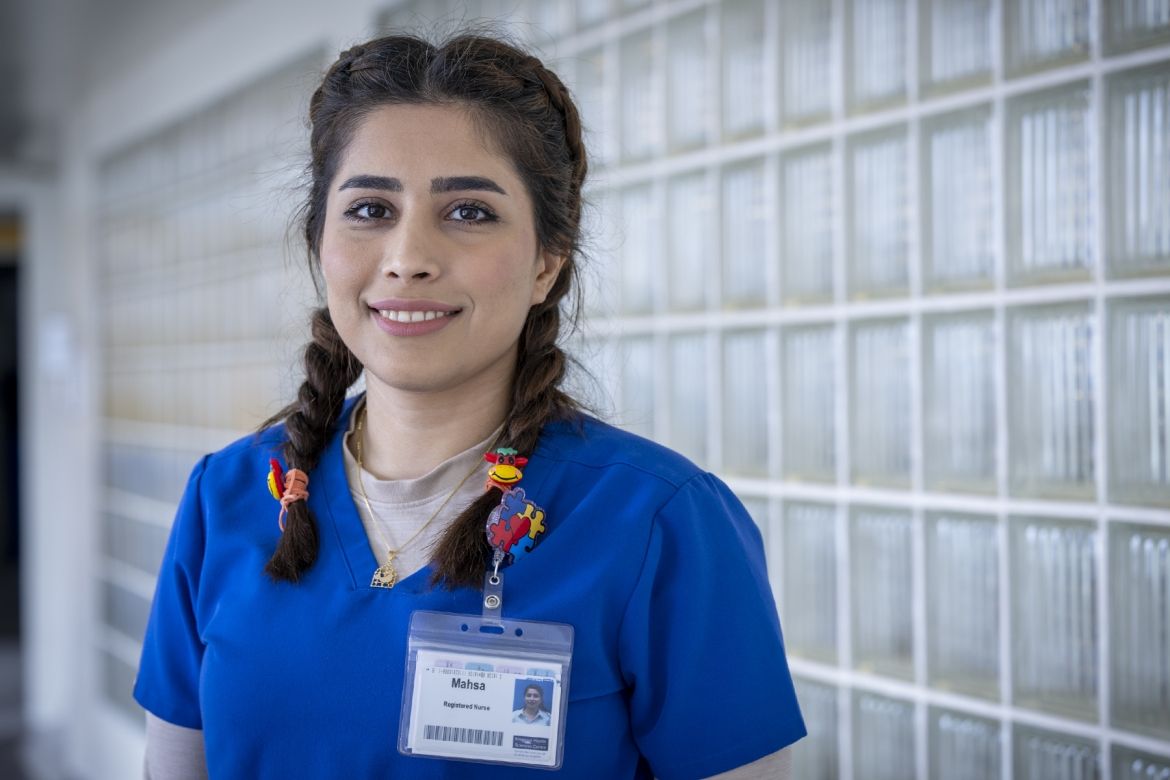
International training: She worked as a nurse in Iran for seven years before moving to New Brunswick in 2023 to work as a personal support worker.
Days on the job: 271
Working in a hospital system with different rules, work methods and ways of communicating with patients and colleagues can be a challenge for most internationally-educated nurses.
Having a support team to help nurses adapt quickly and work with more confidence can make all the difference.
“Throughout my journey, the kindness, patience, and support of my colleagues, my manager and all the orientation team members came through. They took the time to explain processes clearly and answer my questions with empathy. Because of this, I never felt like a stranger in a new environment. Instead, I found myself in a place where I could grow both personally and professionally. Over time, KHSC didn’t just feel like a workplace—it became a second home.
“One of the things that stood out the most was the genuine respect for cultural and ethnic differences. Every interaction made it clear that diversity wasn’t just acknowledged—it was truly celebrated. I never felt isolated, and that unwavering respect made a significant impact on me.”



